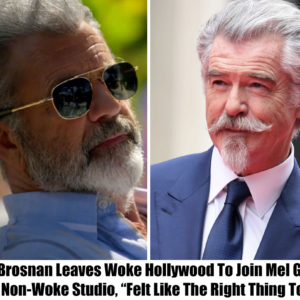Beyoncé’s reported offer to Kid Rock, proposing a collaboration onstage at several of his shows, has sparked a significant conversation about the intersection of genres and the pursuit of authenticity in the music industry. The offer, aimed at bolstering Beyoncé’s presence in the country music world, was met with a blunt rejection from Kid Rock, who accused her of seeking to leverage his name for her own credibility.

Kid Rock’s refusal to entertain Beyoncé’s proposal reflects broader tensions surrounding authenticity and commercialization within the music industry. His comment, “She wants to use my name to add credibility to hers,” suggests a skepticism toward Beyoncé’s intentions and a commitment to preserving the integrity of his own brand. By rejecting the offer and telling Beyoncé and Jay-Z to “shove it,” Kid Rock is making a statement about his values and his allegiance to his fanbase.

The incident sheds light on Beyoncé and Jay-Z’s attempts to penetrate the country music scene, which have been met with skepticism from some quarters. Observers like Lester, who attended one of Kid Rock’s recent shows, note the disparity between Kid Rock’s predominantly blue-collar fanbase and the more mainstream appeal of Beyoncé and Jay-Z. This disconnect underscores the challenges faced by artists seeking to navigate different musical genres and audiences while maintaining authenticity.
Moreover, Kid Rock’s rejection of Beyoncé’s offer raises questions about the nature of collaboration and credibility in the music industry. Beyoncé’s willingness to collaborate with Kid Rock suggests a desire to expand her musical horizons and engage with new audiences. However, Kid Rock’s refusal highlights the complexities of such collaborations and the potential pitfalls of using partnerships as a means of enhancing credibility.
In the broader context of the music industry, Kid Rock’s stance reflects a broader trend of artists seeking validation within the country music community. Figures like Ted Nugent are cited as examples of artists who have pivoted to the country genre in search of renewed relevance and acceptance. Kid Rock’s refusal to align himself with Beyoncé’s efforts to gain legitimacy in the country music world signals a commitment to his own artistic vision and a reluctance to compromise his principles for commercial gain.
Overall, Beyoncé’s offer to Kid Rock and his subsequent rejection highlight the ongoing tensions surrounding authenticity, credibility, and commercialization in the music industry. The incident serves as a reminder of the complexities involved in navigating different musical genres and audiences, and the importance of maintaining integrity and staying true to one’s artistic vision amidst commercial pressures.
News
Zack Snyder Shows Off New Henry Cavill Image From ‘Man of Steel’ – S
Zack making sure fans don’t forget about his DCEU. On Friday, Zack Snyder again took to the Vero app to show off his DCEU, this time with Henry Cavill as Clark Kent from Man of Steel. “This came up on my…
Goodbye DC and Superman, Henry Cavill reveals his favorite role if he joins MCU – S
Henry Cavill has expressed his favorite role if he has the opportunity to collaborate with Marvel Studios. Henry Cavill has officially said goodbye to the role of Superman after the DCEU ended at the end of 2023 to open the…
Breaking: Jack Black Vows To Leave The US Permanently, “I Just Can’t Take It Anymore” – S
In a stunning turn of events, beloved actor and musician Jack Black has announced his departure from the United States, citing a lack of respect as the primary reason for his decision. The star, known for his infectious energy and…
Pierce Brosnan Leaves Woke Hollywood To Join Mel Gibson’s New Non-Woke Studio, “Felt Like The Right Thing To Do” – S
In a surprising turn of events, Pierce Brosnan has announced that he will be joining forces with Mel Gibson in a bold new venture. Gibson’s latest project, a non-woke production studio, aims to create content that diverges from the mainstream…
Henry Cavill reveals his ‘Warhammer 40k’ project is ‘progressing very well’ – S
Henry Cavill has provided a brief but promising update on his upcoming Warhammer 40,000 project. Since Henry Cavill’s controversial departure from the DCU, he has been attached to several highly ambitious projects. One of them is the live-action adaptation of the beloved miniature…
‘Warhammer 40k’ Trolls Are Projecting Their Bigotry on Henry Cavill – S
One of Henry Cavill’s biggest upcoming projects is an undisclosed role in Amazon’s Warhammer 40k TV show adaptation. However, rumor has it that the actor may have left the production. Shortly after announcing his departure from The Witcher and the DCU, Cavill revealed that…
End of content
No more pages to load











